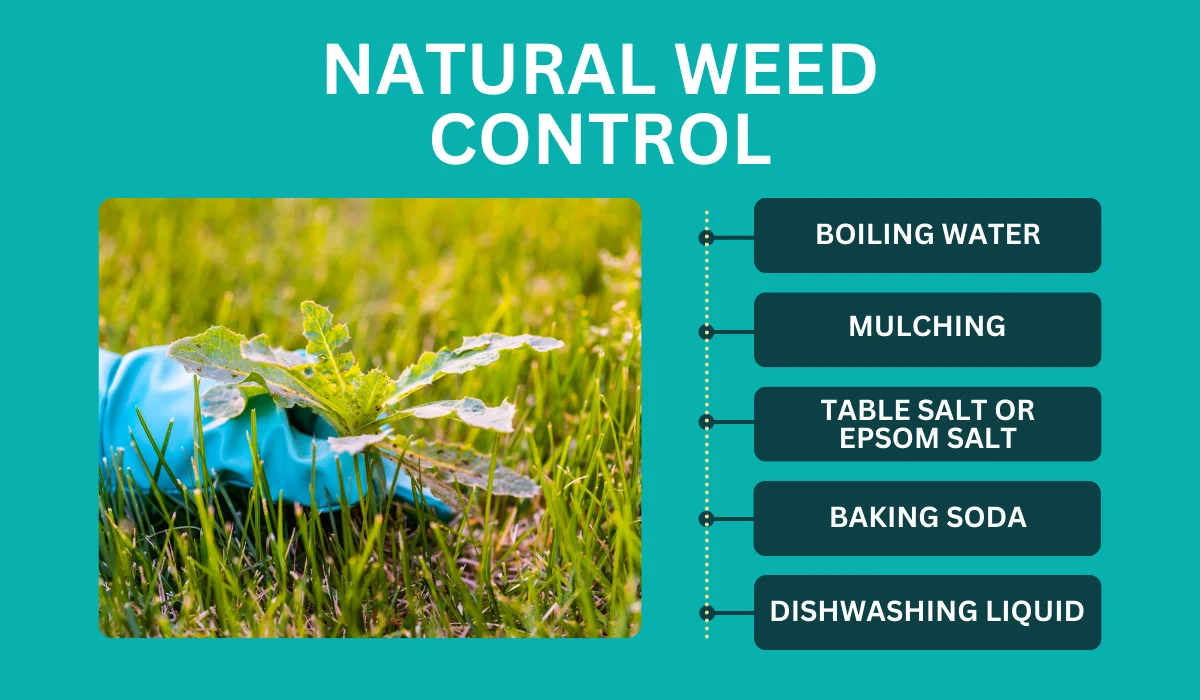Is Vinegar an Effective Weed Killer? Not Exactly
Many gardeners find it challenging to find an effective and eco-friendly method of getting rid of weeds. Often recommended as a natural herbicide, vinegar is touted by many to kill weeds.
While vinegar is an appealing alternative to commercial herbicides, how well does it work on different types of weeds? Keep reading to uncover the best practices and tips for using vinegar to keep your garden weed-free.
Key Takeaways
- Despite its popularity as a natural weed killer, household vinegar's low acetic acid content means it only singes weeds, leaving the roots intact for regrowth.
- Vinegar, particularly wood vinegar rich in acetic acid, is a natural option that can effectively kill certain types of weeds by disrupting their cell structure.
- Vinegar is a safe and affordable contact herbicide for household use, but its effectiveness is limited and may require multiple applications.
Can Household Vinegar Be Your Weed Warrior?
Household vinegar has gained popularity as a potential natural weed killer. However, with its low concentration of acetic acid (around 5%), it lacks the punch to kill most weeds effectively.
While it might scorch the leaves on contact, it won't be strong enough to penetrate deeply and destroy the roots, allowing the weed to resprout.
The Pros and Cons of Vinegar as a Weed Killer
Vinegar herbicide has gained attention as both an effective weed killer and a potential hazard. Therefore, weighing its benefits and drawbacks in various lawn care scenarios is crucial.
The Pros
As a contact herbicide, it kills only the part of the plant it touches, making it useful for spot treatments. Other benefits include:
Pros | Details |
Non-toxic | Safer for households with pets and children compared to synthetics, but it can irritate the skin. |
Easy to Use | Can be mixed with water and a surfactant like dish soap. |
Affordable | Readily available and inexpensive compared to commercial herbicides. |
The Cons
Despite its potential benefits, vinegar also has several limitations and potential risks, such as:
Cons | Details |
Limited Effectiveness | Struggles with perennial weeds having a deep root system, as it doesn't kill the roots. |
Repeated Applications | Often needed to maintain results for persistent weeds such as thistle and poison ivy. |
Non-Selective | Can harm any plants and grass it touches if not applied carefully. |
Alternatives to Vinegar As a Weed Control
When looking for ways to effectively manage weeds without using vinegar, some natural alternatives include natural and professional treatments.
Natural Weed Control

Natural weed control methods offer eco-friendly solutions without resorting to harsh chemicals. These options work well for those who are invested in organic gardening and prefer DIY weed killers that maintain the soil pH:
- Boiling Water: Pouring hot water directly onto weeds in areas like driveways and walkways to kill them instantly.
- Mulching: Suppresses weed growth by blocking sunlight.
- Table Salt or Epsom Salt: Effective for killing weeds on driveways and walkways.
- Baking Soda: Useful for cracks and crevices where weeds tend to grow.
- Dishwashing Liquid: Combined with other ingredients, it can increase the effectiveness of homemade weed killers.
Professional Weed Control
Professional weed control options provide more robust solutions for persistent weed problems. To protect the lawn from dangerous weeds, their methods are suitable for larger areas or when natural remedies are insufficient.
Other critical advantages include:
- Precision Application: They can apply herbicides or pesticides precisely, minimizing damage to desirable plants.
- Long-lasting Results: Professional synthetic and organic herbicides often provide longer-lasting weed control than DIY or natural methods.
- Commercial Products: Use of products like Roundup or those containing glyphosate that are unavailable on Amazon or from U.S.-based suppliers.
- Soil Membranes: Installing membranes can prevent weeds in flower beds and landscaped areas.
When to Call in the Lawn Care Professionals
If your weed problem persists despite repeated household vinegar treatments or the weeds are in sensitive areas like vegetable gardens, consider hiring a professional lawn care company (like us at Native Pest Management).
Our trained experts have access to stronger, more effective treatments that aren't available to the general public. We also bring expertise in identifying the type of weeds and the best methods to eradicate them.
